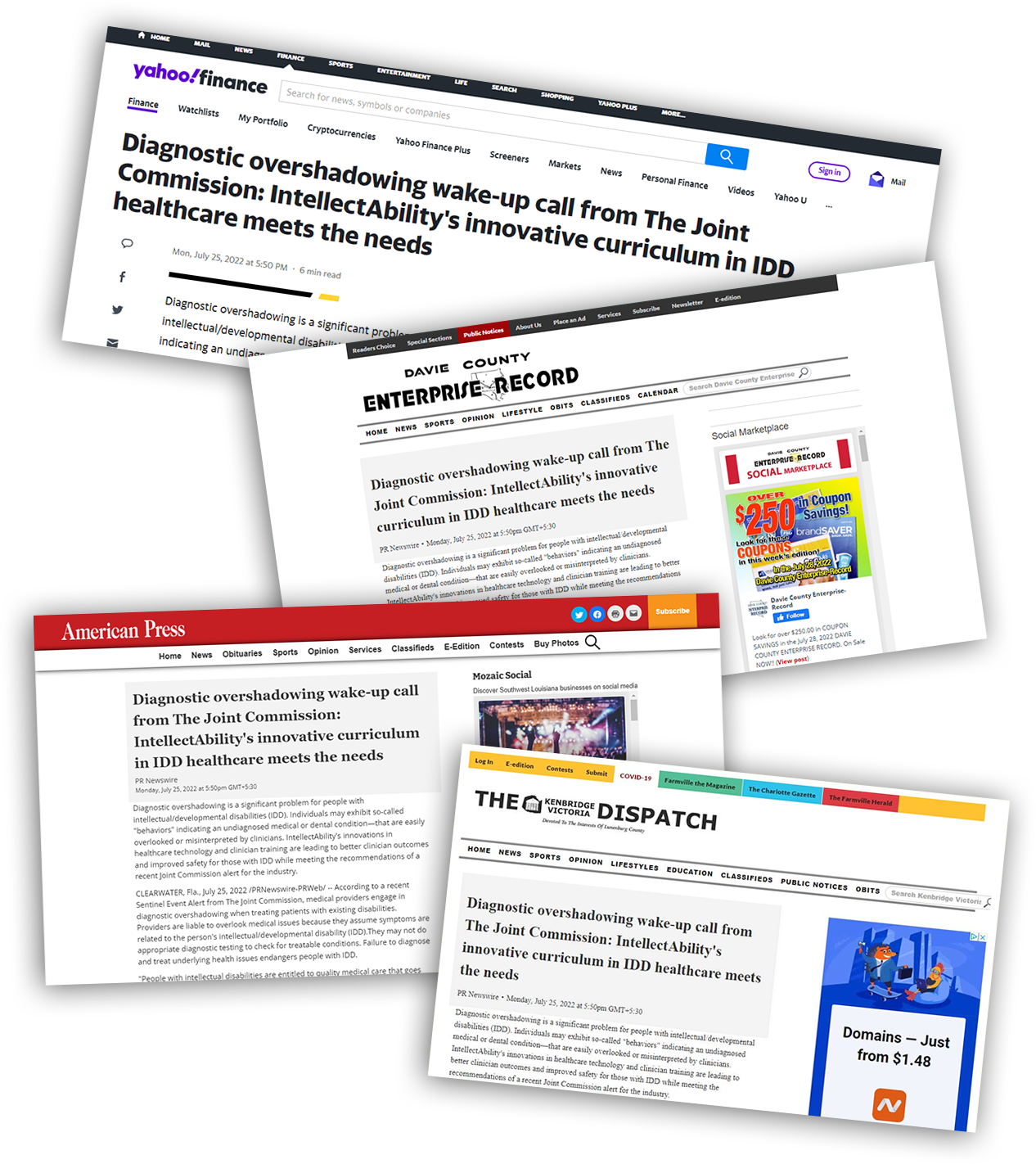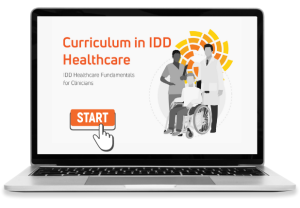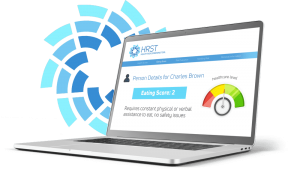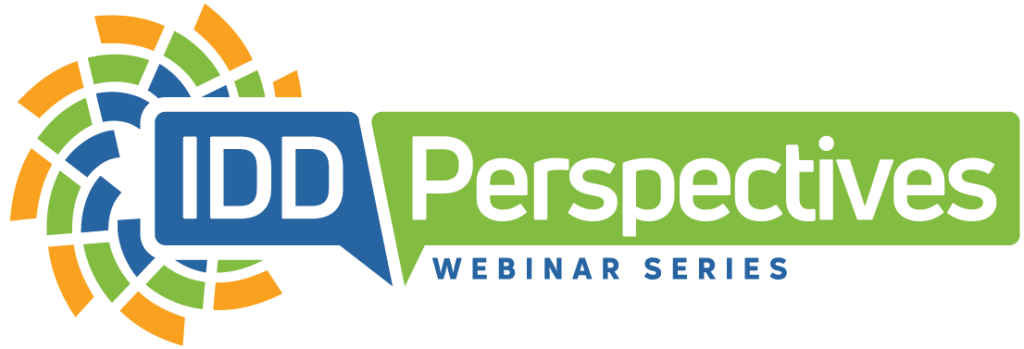
Diagnostic Overshadowing Wake-up Call from The Joint Commission: IntellectAbility’s Innovative Curriculum in IDD Healthcare Meets the Needs
July 2022

Diagnostic overshadowing is a significant problem for people with intellectual/developmental disabilities (IDD). Individuals may exhibit so-called “behaviors” indicating an undiagnosed medical or dental condition—that are easily overlooked or misinterpreted by clinicians. IntellectAbility’s innovations in healthcare technology and clinician training are leading to better clinician outcomes and improved safety for those with IDD while meeting the recommendations of a recent Joint Commission alert for the industry.
According to a recent Sentinel Event Alert from The Joint Commission, medical providers engage in diagnostic overshadowing when treating patients with existing disabilities. Providers are liable to overlook medical issues because they assume symptoms are related to the person’s intellectual/developmental disability (IDD). They may not do appropriate diagnostic testing to check for treatable conditions. Failure to diagnose and treat underlying health issues endangers people with IDD.
“People with intellectual disabilities are entitled to quality medical care that goes beyond intellectual disability services. When providers misinterpret and misdiagnose symptoms, serious health issues may go untreated,” says Dr. Craig Escudé, a physician and president of IntellectAbility. “It’s critical that any health care provider working in a clinical setting understand how to interact with people of all abilities and their caregivers. We applaud the Joint Commission for raising awareness about the need for expanded training in this area.”
Misdiagnosis or lack of diagnosis can lead to quantifiable harm. In some cases, people with IDD are prescribed psychotropic medications to treat behaviors that are simply attributed to the person’s disability rather than looking for the root cause that may be a physical condition such as a dental abscess or gastrointestinal problem. The delay in appropriate diagnosis and treatment exacerbates the physical condition while also exposing the person to unnecessary medications.
In their investigation of diagnostic overshadowing, The Joint Commission discovered that as many as one-third of U.S. physicians are not familiar with legal requirements under the Americans with Disabilities Act (ADA). Most U.S. medical schools do not provide disability healthcare competency training, leaving physicians with limited opportunities to learn best practices in working with patients who have IDD diagnoses. In response, the Joint Commission calls for improved “awareness of diagnostic overshadowing during clinical peer and quality assurance reviews and by addressing it in training and education programs.”
The Joint Commission laid out clear actions that health care providers can adopt to mitigate diagnostic overshadowing in their practices. IntellectAbility innovations are aligned with the JC’s recommendations:
Recommendation: Create an awareness of diagnostic overshadowing during clinical peer and quality assurance reviews by addressing it in training and education programs.
IntellectAbility’s Curriculum in IDD Healthcare (CIDDH) includes a section specifically designed to instruct health care professions students and practicing clinicians on how to “unlock the language of behavior.” The training emphasizes how in-depth assessment of behavioral or psychiatric symptoms can lead to diagnosis and treatment of underlying medical conditions.

Recommendation: Use listening and interviewing techniques designed to gain better patient engagement and shared decision-making.
IntellectAbility’s CIDDH provides concrete recommendations for directly and actively engaging people with IDD in their health management. CIDDH specifically includes effective communication strategies for supporting people who may not communicate using words. The training also emphasizes the key role of supporters and family members during the diagnosis and treatment process.
Recommendation: Collect and aggregate data about pre-existing conditions and disabilities and create electronic health record (EHR) prompts for clinicians.

IntellectAbility’s Health Risk Screening Tool is a well-established and trusted web-based tool that detects health destabilization and contains a wide range of data that informs the person’s health risk level. The HRST aggregates data about a person’s medications, medical conditions, and other key health-related information and is interoperable with other IT/EHR and case management systems.
When a health risk is identified, the HRST provides “service considerations” to providers. For example, the tool may suggest a gastrointestinal consultation and appropriate follow-up for a person found to be at risk for severe constipation or bowel obstruction.
The HRST also includes information about the signs a particular person might express with the onset of a known condition. The person’s history would show what behaviors they have exhibited during previous health episodes, offering providers insight into what those behaviors could mean clinically.
Recommendation: Use an intersectional framework when assessing patients in groups prone to diagnostic overshadowing to overcome cognitive biases and look beyond previous diagnoses.
IntellectAbility’s Curriculum in IDD Healthcare starts with a robust discussion on health equity for people with IDD. CIDDH addresses the need for clinicians to develop IDD Healthcare competency in order to overcome “unconscious bias” about a person’s quality of life when making treatment decisions for people with IDD. Diagnostic overshadowing can be detrimental to the quality of care and can contribute to delays in diagnosis and treatment, unnecessary or unsafe care, and inequities of care.
IntellectAbility and The Joint Commission both recognize that diagnostic overshadowing is a phenomenon that stems from a correctable cognitive bias. Appropriate awareness and training are crucial for clinicians seeking to overcome cognitive biases.
“Shifting to a person-centered model of medical care makes good sense,” says Dr. Escudé. “As The Joint Commission recognizes, when providers set aside bias and assumption, they can listen to patients more effectively and therefore treat them more effectively. At IntellectAbility, we have decades of experience teaching person-centered methods to clinicians and caregivers who work in intellectual and developmental disability services. Our programs can help medical providers acquire the skills called for in The Joint Commission Sentinel Event Alert.”
Feel free to call us at 727-437-3201 or email us at Inquiries(at)ReplacingRisk.com.




